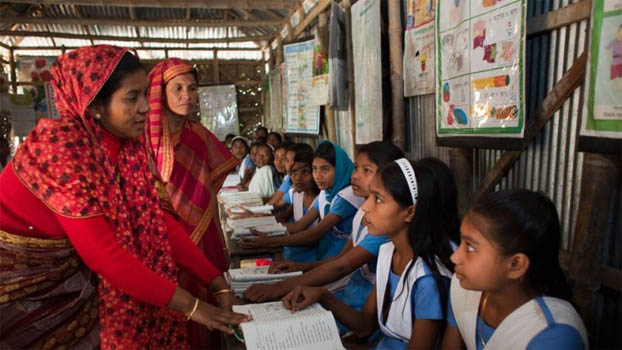Standardisation of education needs to happen

Md Saifuddin Al Quaderi
The precondition for building a strong progressive nation is a properly educated populace and every level of education to be established. This main concern should not be seen as in competition with the higher levels due to its inherent massive contribution to all subsequent levels. In other words, undervaluation of this level would negatively impact education at the high school and university resulting ultimately in hindering the progress of a nation. Thus education system should be appropriate with the time and international standard as well.
The quality of education as well as education system of Bangladesh when compared with international level gives rise to important issues which if left unsolved can be problematic. For example, Western European countries which prioritised primary education in the 19th century have all advanced greatly and are the leaders of the world today. This significance was realised by the post independent government of Bangladesh and the first education commission recommended investment in the primary level of education.
There have been many serious studies, the results of which recommended changes based on such studies by different education commissions since 1972 have been implemented under the different governments of independent Bangladesh with various degrees of success. Unfortunately, despite huge investment and efforts by both the government and the private sector, desired level of success has been elusive.
Analytical approaches addressing problems with the aim of improving primary education in Bangladesh has been limited to the various Education Commissions. Even they have failed to fully address the problems as is evidenced by how far Bangladesh is falling behind internationally.
The standardization of education should have happened right after independence was achieved through the glorious Liberation War of 1971. But, at that time, as the queue of priorities was full with infrastructure reconstruction, economic stabilisation and managing food for a country devastated by war, the betterment of education was out of sight at that moment.
Afterwards, there were scopes for development of the education sector, but continuous political turmoil in the country prevented fruitful steps from being taken. The present scene of education in Bangladesh has changed quite a lot. But in comparison with the international countries, there is still much to be attained.
The standardisation of education has been pondered upon many times, however, fruitful initiatives bearing results to improve the condition are not seen. The main focus of the education sector at present is to have a high pass percentage rather than providing a quality education to the learners. This results in the passing of students each year but the quality with which they are passing gets diminishing every year.
Data taken from surveys and studies conducted in the country point to the fact that 55 percent of the teachers do not understand critical education methods and over 40 percent of high schools are unable to prepare creative questions. On top of that, majority of the teachers rely on guide books and notes on texts to provide the so called ‘education’ to the young learners. A report published by the Directorate of Primary Education (DPE) from 2015 present that seven out of ten students don’t know how to write properly.
Experts have opined that, “After SSC and HSC, 35 to 40 percent of the students in our country have no scope of enrolling themselves in colleges or universities.” Several reports say that no more than 20% of GPA 5 students are eligible for admission into Dhaka University. As a result of this, the middle class families and lower middle class families are hurting the most. It is because of these reasons that people coming from middle income families are failing to acquire the professional skills needed in order to enter a proper working environment and participate in the competitive job market. What this creates is a socio-economic class constriction which severely restricts the mobility and development of the livelihood of the classes and the young people from the middle income families are condemned to the social position they are in.
On the other hand, if the local socio-economic class is very weak and the quality of local graduates is questioned then people tend to look abroad for better quality work force. At the root of all this stigmatisation is the level of primary education being delivered in our country that needs to be standardised first.
The education system in Bangladesh needs to be assessed objectively, weaknesses identified and steps need to be taken to strengthen this vital educational level. In fact, in Bangladesh, there are 13 different types of curricula being followed at the primary level. This poses a big problem. Strengths and weaknesses vary tremendously among the students. As a result it is quite impossible to accommodate these students of diverse backgrounds in the same class maintaining a single standard at the higher levels.
The authorities concerned should take heed of the situation and present apt solutions to this problem. One step which can be taken in this case is the establishing of newer and well stocked libraries around the country.
Such an initiative will undoubtedly be a commendable one which will be appreciated by students around the nation.
Md Saifuddin Al Quaderi is working with Bangladesh Post





